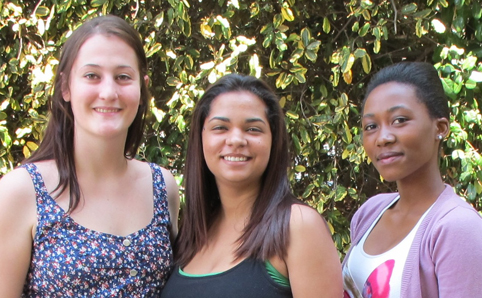 |
|
Tarran Jacobs, Elizabeth Forson and Mafohlela Mahlatsi's breast cancer awareness advertisement earned them a prestigious Loerie award.
|
The creativity of a group of students from our university was rewarded with a bronze Loerie Award after they won an internal competition.
Tarran Jacobs, Elizabeth Forson and Mafohlela Mahlatsi, all third-year Marketing Communication students, won the award for an advertisement they designed for Cansa.
Each year, the third-year Marketing Communication students of the Department of Communication Science have the opportunity to flex their creative muscles in the Copy-writing class. The challenge is to design two advertisements for any charity organisation by applying the knowledge they gained from the subject in a practical way. The top three groups are then entered for the Loerie and Pendoring awards – two of the most prestigious awards in the South African advertising industry.
The top three groups designed advertisements for Cansa, the South African Blood Service and Crime Line.
“They deserve this compliment and it is a good indication of the relevance of our copy-writing course,” says Prof. Angelique van Niekerk, associate professor in the Department of Afrikaans, Dutch, German and French.